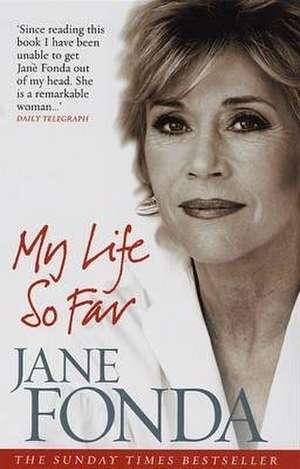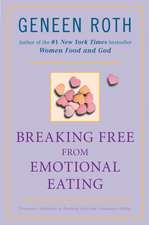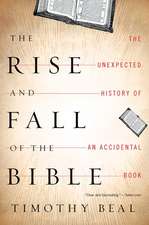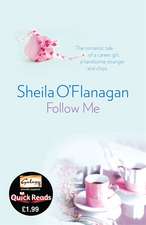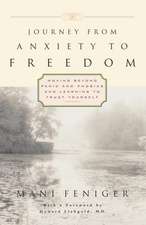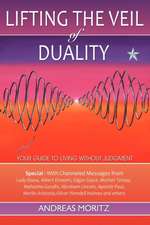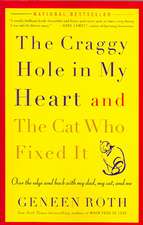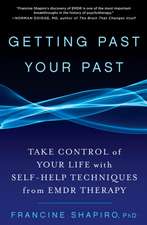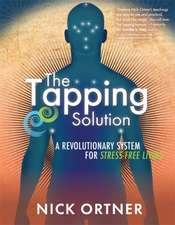My Life So Far
Autor Jane Fondaen Limba Engleză Paperback – 2 mar 2006
| Toate formatele și edițiile | Preț | Express |
|---|---|---|
| Paperback (2) | 101.50 lei 24-30 zile | +37.05 lei 4-10 zile |
| Ebury Publishing – 2 mar 2006 | 101.50 lei 24-30 zile | +37.05 lei 4-10 zile |
| Random House Trade – 31 mar 2006 | 138.36 lei 3-5 săpt. | +35.24 lei 4-10 zile |
Preț: 101.50 lei
Preț vechi: 120.84 lei
-16% Nou
Puncte Express: 152
Preț estimativ în valută:
19.42€ • 20.20$ • 16.04£
19.42€ • 20.20$ • 16.04£
Carte disponibilă
Livrare economică 27 martie-02 aprilie
Livrare express 07-13 martie pentru 47.04 lei
Preluare comenzi: 021 569.72.76
Specificații
ISBN-13: 9780091906139
ISBN-10: 009190613X
Pagini: 624
Ilustrații: b/w photographs throughout
Dimensiuni: 126 x 198 x 43 mm
Greutate: 0.43 kg
Editura: Ebury Publishing
Locul publicării:United Kingdom
ISBN-10: 009190613X
Pagini: 624
Ilustrații: b/w photographs throughout
Dimensiuni: 126 x 198 x 43 mm
Greutate: 0.43 kg
Editura: Ebury Publishing
Locul publicării:United Kingdom
Notă biografică
JANE FONDA was born in New York City in 1937. She attended the Emma Willard School in Troy, New York, and Vassar College. Fonda later studied with renowned acting coach Lee Strasberg and became a member of the Actors Studio in New York. Her subsequent work on stage and screen earned numerous honors, including two Best Actress Academy Awards–Klute (1971) and Coming Home (1978)–and an Emmy Award for her performance in The Dollmaker. Fonda was also a successful producer, whose credits include The China Syndrome, Nine to Five, On Golden Pond, and The Morning After.
Fonda revolutionized the fitness industry with the release of Jane Fonda’s Workout in 1982, which remains the top-grossing home video of all time. She then produced twenty-three home exercise videos, thirteen audio recordings, and five bestselling books. She now focuses her time on activism and philanthropy, in such areas as adolescent reproductive health, pregnancy prevention, school reform through arts, and building resiliency in girls and boys by addressing destructive gender stereotypes. In 1995 she founded the Georgia Campaign for Adolescent Pregnancy Prevention (G-CAPP), which she chairs. In 2002, she opened the Jane Fonda Center for Adolescent Reproductive Health at Emory University's School of Medicine. She lives in Atlanta.
From the Hardcover edition.
Fonda revolutionized the fitness industry with the release of Jane Fonda’s Workout in 1982, which remains the top-grossing home video of all time. She then produced twenty-three home exercise videos, thirteen audio recordings, and five bestselling books. She now focuses her time on activism and philanthropy, in such areas as adolescent reproductive health, pregnancy prevention, school reform through arts, and building resiliency in girls and boys by addressing destructive gender stereotypes. In 1995 she founded the Georgia Campaign for Adolescent Pregnancy Prevention (G-CAPP), which she chairs. In 2002, she opened the Jane Fonda Center for Adolescent Reproductive Health at Emory University's School of Medicine. She lives in Atlanta.
From the Hardcover edition.
Extras
CHAPTER ONE: BUTTERFLY
Stay near me—do not take thy flight!
A little longer stay in sight!
Much converse do I find in thee,
Historian of my infancy!
—William Wordsworth,
“To a Butterfly”
I sat cross-legged on the floor of the tiny home I’d created out of cardboard boxes. The walls were so high that all I could see if I looked up was the white-painted tongue-and-groove ceiling of the glassed-in porch so common in Connecticut in the 1940s. The porch ran the entire length of the house and smelled of mildew. Light from the windows bounced off the ceiling down to where I sat, so I didn’t need a lamp as I worked on the saddle. I was eleven years old.
It was an English saddle, my half sister Pan’s, from the time before she’d gotten married, sold her horse, and moved to New York City—from the time when we still believed things would work out all right.
I held the saddle on my lap, rubbing saddle soap into the beautiful, rich leather, over and over. . . . Make it better. I know I can make it better. The smell of saddle soap was comforting. So was the smallness of my home. This was a place where I could be sure of things. No one was allowed in here but me—not my brother, Peter, not anyone. Everything was always arranged just so—the saddle, the soap, the soft rags folded carefully, and my book of John Masefield poems. Neatness was important . . . something to count on.
Mother was home for a while and if I leaned forward ever so slightly, I could look out my “door” down the length of the porch, to where she sat at an oilcloth-covered table on which stood a Mason jar. A butterfly would be beating its wings frantically against the glass walls of the jar, and I could see my mother pick up a cotton ball with tweezers, dip it into a bottle of ether, unscrew the top of the jar, and carefully drop in the ether-soaked ball. After a minute, I could see the butterfly’s wings begin to slow their mad fluttering, until gradually they would stop moving altogether. Peace. A whiff of ether drifted down to where I sat, making me think of the dentist. I knew just what the butterfly felt, because whenever I went to have my braces tightened, the nurse would put a mask over my nose and tell me to breathe deeply. In no time the edges of my body would begin to disappear. Sound would come to me from far away and I would feel a wonderful, cosmic abandon as I fell backward down a dark hole, like Alice to Wonderland. Oh, I wished that I could make that sensation last forever. I didn’t feel sorry at all for the butterfly.
After a while, mother would unscrew the lid; gently remove the butterfly with the long tweezers; carefully, lovingly, pierce its body with a pin; and mount it on a white board on the wall above the table. There were at least a dozen of them up there, different kinds of swallowtails, a southern dogface, a red admiral, a clouded sulphur, and a monarch. I never could decide which one was my favorite.
Once she took me with her to a meadow full of wildflowers and tall grasses where she went to catch her butterflies. There was still an abundance of wild places—swamps, unexplored forests, and meadows—in Greenwich, Connecticut, in the 1940s. I watched as she moved through the grass—her blond, sun-blushed hair blowing in the wind—swooping down with her green net, then flipping the net quickly to close off the butterfly’s escape route. I would help her get it safely into a jar and quickly screw the top on.
It puzzled me a little why Mother had decided to take up butterfly collecting. I don’t remember her ever doing this when we lived in California. I was the one fascinated with butterflies. I was always painting pictures of them. When I was ten, right before we’d moved from California, I gave my father a drawing for his birthday. “Butterflies by Jane Fonda” was written up in the right-hand corner, and then two rows of them with their names written underneath in my tight, straight-up-and-down-careful-not-to-reveal-anything handwriting. My letter said:
May 19, 1948.
Dear Dad,
I did not trace these drawings of butterflies. I hope you had a happy birthday. I heard you on the Bing Crosby program. Every two days I will send you another picture of butterflies.
Love, Jane.
By the time Mother took up the butterfly hobby, I had turned eleven, Peter was nine, and we were living in our second rented house in Connecticut. It was a rambling two-story wood house perched atop a steep hill overlooking a tollgate on the Merritt Parkway. I could look out my bedroom window and count the cars. Prior to the move east, we’d grown up in California’s Santa Monica Mountains and, instead of a tollgate, we looked out onto the vast, shimmering Pacific Ocean. Maybe that is why my childhood fantasies of conquering all the enemies of the world were so expansive. Had I grown up overlooking the tollgate, I might have seen myself as an accountant.
This new house was on a large piece of property bordered to the west by an immense hardwood forest that, in the winter, became a leafless gray fortress. Then in the spring, dogwood would bloom, hopeful and white through the layered forest gray, and redbud would add slashes of magenta. By May, an array of greens would transform the woods once again. For someone who had spent the first ten years of her life seasonless in California, this ever-changing palette seemed miraculous.
The house had an uncomfortable Charles Addams–y quality about it, always too dark and chilly, and it had far more rooms than there were people living there, which added a sense of impermanence and awkwardness to its hilltop perch. There was Grandma Seymour (Mother’s mother), Peter, me, and a Japanese-American maid named Katie. Peter says Katie’s familiar presence with us after three years was comforting to him. I, on the other hand, barely remember her. But then Peter got more attached to people than I did. I was the Lone Ranger.
Mother wasn’t with us much anymore, though I didn’t know why. It was during one of the periods when she was back from wherever it was she went that the butterfly collection was started. Maybe someone had suggested that she get herself a hobby. Peter and I had stopped paying much attention to her being away, or at least I had. It had simply become a fact of our lives: Mother would be there, and then she wouldn’t. When she wasn’t there, and even when she was, Grandma Seymour would be in charge of us. Grandma was a strong woman, a constant presence in our early lives. But though I loved her, I don’t remember ever running joyfully into her arms the way my own grandchildren do with me. I don’t remember her ever imparting grandmotherly wisdom or even being fun to be with. She was a more formal, stalwart presence. But she was always there to meet our external needs.
Around the house there’d be an occasional murmured mention of a hospital or of an illness, and right after we’d moved to Greenwich, Mother had been in Johns Hopkins Hospital for a long time, for an operation on a dropped kidney. Grandma took Peter and me to visit her there once, and I remember Mother telling me they’d almost cut her in half. But she’d been “ill” and in hospitals so much that it had lost any real meaning. Hospitals were supposed to make you well so you could come home and stay.
Ever since we had moved to Greenwich I had spent a lot of time in hospitals myself—me, the healthy one. I’d developed blood poisoning, then chronic ear infections; then I started breaking bones. My arm was broken the first time during a wrestling match with a boy, Teddy Wahl, the son of the man who ran the nearby Round Hill Stables and Riding Club. Teddy threw me against a stall door. It hurt, but I walked home and didn’t say anything—between Peter and Mother, we had enough hypochondriacs in the house. I was not going to complain. Instead, I sat in front of the black-and-white TV to watch The Howdy Doody Show, my favorite because it regularly included a short Lone Ranger film.
I sat carefully on my hands, as I always did when Dad was home, because I was scared he would see that I was still biting my fingernails. As we sat down to eat, Dad asked me if I’d washed my hands, and when I told him I hadn’t, he exploded in anger, pulled me out of my seat and into the bathroom, turned on the faucet, took the broken arm (which I’d been holding limply by my side), and thrust it under the water. I passed out. He’d no idea that I was hurt and was very apologetic as he rushed me to the hospital, where my arm was X-rayed and put into a cast. The worst part was that all this happened right before school started, my first year at the all-girls Greenwich Academy—just at the time when everybody would be checking out who was cool (we called it “neat” back then), who was good at field hockey, and whom they wanted to be friends with, I had to show up with my arm in a cast.
At the time, Dad was starring in the Broadway smash hit Mister Roberts. I now realize that I must have sensed that something was very wrong between my parents. Palpable tension was in the air: Dad’s anger and black moods; Mother’s increasing absences. Even if I had had the words to express what I “knew,” I’d already learned that no one would listen to words that spoke about feelings. So instead, my body was sending out distress signals.
There’s a set of photos of us taken around that time. Just after we left California, Harper’s Bazaar had come out to interview Dad and take pictures of the family “picnicking”—one of those setup jobs that make the children of movie stars feel like props. The pictures show us sitting on the lawn: Dad, Mother, Peter, me, and Pan (my half sister, the one with the saddle), who at sixteen was beautiful and remarkably voluptuous.
There is one photograph in particular that says it all. I discovered it in a scrapbook many years of therapy later, when I was able to see it with more perception and compassion. Dad is in the foreground leaning back on his elbows, looking as if he’s got something really good going on in his head that has nothing to do with all of us. I am kneeling next to him, looking intently at him, as I often did in our family pictures, showing clearly whose side I was on. Behind me Peter is playing with the cat, and Pan is lounging glamorously. And then, in the background, almost like an outsider, there’s Mother, leaning forward toward us with an expression of pain and anxiety on her face. I feel so sad when I look at that face, which I’ve done often with a magnifying glass.
Why couldn’t I have known? Why wasn’t I nicer? I was ten years old.
Dad had come out of the navy at the end of World War II and (what felt like) the very next day had gone off to New York to start rehearsals for Mister Roberts while we stayed in California. When it became clear that the play was in for a long run, Mother decided to put our home up for sale and move east. She settled on Greenwich, thinking that the thirty-five-minute train or car ride from New York City would make weekend commutes easy for Dad. Plus, in that well-heeled Connecticut enclave, there would be homes to rent on large enough pieces of property so that Peter and I could continue our habit of roaming the outdoors. My parents were at least right about that part.
I don’t remember Dad being around much after we moved to Greenwich. When he was there, I could almost feel his energy pulling him back toward New York, though I didn’t really know why. I supposed it was just that Mother, Peter, and I weren’t all that interesting. When he’d visit us I could sense that he didn’t really want to be there. But Dad had been an Eagle Scout, and the commitment to doing one’s duty was embedded in his DNA. I wish the Scouts had taught him how to make it seem less like a duty.
Sometimes Dad would come out on a Sunday and take Peter and me fishing for flounder in nearby Long Island Sound. Dad was usually in a bad mood, which meant these excursions weren’t exactly “fun times,” but I enjoyed them anyway—all of us together in the little rented motorboat, the salty smells mixed with engine fumes, the anticipation as we’d pull out of the harbor, round the buoy, and head to sea. Because flounder are bottom feeders, we’d never go out very far before Dad would turn off the motor and tell us to bait our hooks. This was always the moment of reckoning.
Baiting the hook meant reaching into a bucket filled with reddish brown kelp, among which writhed long reddish brown bloodworms with what appeared to be claws in their heads. Peter didn’t like them at all. Peter, in fact, would refuse to touch them—which in itself took guts. Dad wouldn’t even try to disguise the disgust he felt about Peter’s squeamishness, and his moods would get blacker and blacker. Whereupon I, the Lone Ranger, would ride to the rescue and be man enough for both of us. I’d pick up that worm and stick the hook right through its squirmy head without even a shudder. I didn’t do this to make Peter look bad. I loved my brother. I just wanted to prove my toughness to Dad and make the tension go away.
Peter was who he was. When he was scared he showed it; if he was sick, he’d complain about it—damn the consequences. I often wished he’d pretend like I did, just to make things easier. But, no, Peter was himself. And I, well, I’d gotten into the habit of leaving myself behind someplace in order to win Dad’s approval. Make things better. I know I can make things better.
Once, Dad had us come into the city and took us to the circus. A New York columnist, Radie Harris, who knew our family, was also there and was quoted as saying:
I remember sitting in a box at the circus a few months after Mister Roberts opened. Hank sat just to my right. With him were Jane and Peter, and not once during the entire performance did he say a word to either child. And either the children knew enough to say nothing, or they might have been too intimidated to speak. He didn't buy them hot dogs, cotton candy, or treat them to souvenirs. When the circus was over, they simply stood up and walked out. I felt sorry for all three of them.
From the Hardcover edition.
Stay near me—do not take thy flight!
A little longer stay in sight!
Much converse do I find in thee,
Historian of my infancy!
—William Wordsworth,
“To a Butterfly”
I sat cross-legged on the floor of the tiny home I’d created out of cardboard boxes. The walls were so high that all I could see if I looked up was the white-painted tongue-and-groove ceiling of the glassed-in porch so common in Connecticut in the 1940s. The porch ran the entire length of the house and smelled of mildew. Light from the windows bounced off the ceiling down to where I sat, so I didn’t need a lamp as I worked on the saddle. I was eleven years old.
It was an English saddle, my half sister Pan’s, from the time before she’d gotten married, sold her horse, and moved to New York City—from the time when we still believed things would work out all right.
I held the saddle on my lap, rubbing saddle soap into the beautiful, rich leather, over and over. . . . Make it better. I know I can make it better. The smell of saddle soap was comforting. So was the smallness of my home. This was a place where I could be sure of things. No one was allowed in here but me—not my brother, Peter, not anyone. Everything was always arranged just so—the saddle, the soap, the soft rags folded carefully, and my book of John Masefield poems. Neatness was important . . . something to count on.
Mother was home for a while and if I leaned forward ever so slightly, I could look out my “door” down the length of the porch, to where she sat at an oilcloth-covered table on which stood a Mason jar. A butterfly would be beating its wings frantically against the glass walls of the jar, and I could see my mother pick up a cotton ball with tweezers, dip it into a bottle of ether, unscrew the top of the jar, and carefully drop in the ether-soaked ball. After a minute, I could see the butterfly’s wings begin to slow their mad fluttering, until gradually they would stop moving altogether. Peace. A whiff of ether drifted down to where I sat, making me think of the dentist. I knew just what the butterfly felt, because whenever I went to have my braces tightened, the nurse would put a mask over my nose and tell me to breathe deeply. In no time the edges of my body would begin to disappear. Sound would come to me from far away and I would feel a wonderful, cosmic abandon as I fell backward down a dark hole, like Alice to Wonderland. Oh, I wished that I could make that sensation last forever. I didn’t feel sorry at all for the butterfly.
After a while, mother would unscrew the lid; gently remove the butterfly with the long tweezers; carefully, lovingly, pierce its body with a pin; and mount it on a white board on the wall above the table. There were at least a dozen of them up there, different kinds of swallowtails, a southern dogface, a red admiral, a clouded sulphur, and a monarch. I never could decide which one was my favorite.
Once she took me with her to a meadow full of wildflowers and tall grasses where she went to catch her butterflies. There was still an abundance of wild places—swamps, unexplored forests, and meadows—in Greenwich, Connecticut, in the 1940s. I watched as she moved through the grass—her blond, sun-blushed hair blowing in the wind—swooping down with her green net, then flipping the net quickly to close off the butterfly’s escape route. I would help her get it safely into a jar and quickly screw the top on.
It puzzled me a little why Mother had decided to take up butterfly collecting. I don’t remember her ever doing this when we lived in California. I was the one fascinated with butterflies. I was always painting pictures of them. When I was ten, right before we’d moved from California, I gave my father a drawing for his birthday. “Butterflies by Jane Fonda” was written up in the right-hand corner, and then two rows of them with their names written underneath in my tight, straight-up-and-down-careful-not-to-reveal-anything handwriting. My letter said:
May 19, 1948.
Dear Dad,
I did not trace these drawings of butterflies. I hope you had a happy birthday. I heard you on the Bing Crosby program. Every two days I will send you another picture of butterflies.
Love, Jane.
By the time Mother took up the butterfly hobby, I had turned eleven, Peter was nine, and we were living in our second rented house in Connecticut. It was a rambling two-story wood house perched atop a steep hill overlooking a tollgate on the Merritt Parkway. I could look out my bedroom window and count the cars. Prior to the move east, we’d grown up in California’s Santa Monica Mountains and, instead of a tollgate, we looked out onto the vast, shimmering Pacific Ocean. Maybe that is why my childhood fantasies of conquering all the enemies of the world were so expansive. Had I grown up overlooking the tollgate, I might have seen myself as an accountant.
This new house was on a large piece of property bordered to the west by an immense hardwood forest that, in the winter, became a leafless gray fortress. Then in the spring, dogwood would bloom, hopeful and white through the layered forest gray, and redbud would add slashes of magenta. By May, an array of greens would transform the woods once again. For someone who had spent the first ten years of her life seasonless in California, this ever-changing palette seemed miraculous.
The house had an uncomfortable Charles Addams–y quality about it, always too dark and chilly, and it had far more rooms than there were people living there, which added a sense of impermanence and awkwardness to its hilltop perch. There was Grandma Seymour (Mother’s mother), Peter, me, and a Japanese-American maid named Katie. Peter says Katie’s familiar presence with us after three years was comforting to him. I, on the other hand, barely remember her. But then Peter got more attached to people than I did. I was the Lone Ranger.
Mother wasn’t with us much anymore, though I didn’t know why. It was during one of the periods when she was back from wherever it was she went that the butterfly collection was started. Maybe someone had suggested that she get herself a hobby. Peter and I had stopped paying much attention to her being away, or at least I had. It had simply become a fact of our lives: Mother would be there, and then she wouldn’t. When she wasn’t there, and even when she was, Grandma Seymour would be in charge of us. Grandma was a strong woman, a constant presence in our early lives. But though I loved her, I don’t remember ever running joyfully into her arms the way my own grandchildren do with me. I don’t remember her ever imparting grandmotherly wisdom or even being fun to be with. She was a more formal, stalwart presence. But she was always there to meet our external needs.
Around the house there’d be an occasional murmured mention of a hospital or of an illness, and right after we’d moved to Greenwich, Mother had been in Johns Hopkins Hospital for a long time, for an operation on a dropped kidney. Grandma took Peter and me to visit her there once, and I remember Mother telling me they’d almost cut her in half. But she’d been “ill” and in hospitals so much that it had lost any real meaning. Hospitals were supposed to make you well so you could come home and stay.
Ever since we had moved to Greenwich I had spent a lot of time in hospitals myself—me, the healthy one. I’d developed blood poisoning, then chronic ear infections; then I started breaking bones. My arm was broken the first time during a wrestling match with a boy, Teddy Wahl, the son of the man who ran the nearby Round Hill Stables and Riding Club. Teddy threw me against a stall door. It hurt, but I walked home and didn’t say anything—between Peter and Mother, we had enough hypochondriacs in the house. I was not going to complain. Instead, I sat in front of the black-and-white TV to watch The Howdy Doody Show, my favorite because it regularly included a short Lone Ranger film.
I sat carefully on my hands, as I always did when Dad was home, because I was scared he would see that I was still biting my fingernails. As we sat down to eat, Dad asked me if I’d washed my hands, and when I told him I hadn’t, he exploded in anger, pulled me out of my seat and into the bathroom, turned on the faucet, took the broken arm (which I’d been holding limply by my side), and thrust it under the water. I passed out. He’d no idea that I was hurt and was very apologetic as he rushed me to the hospital, where my arm was X-rayed and put into a cast. The worst part was that all this happened right before school started, my first year at the all-girls Greenwich Academy—just at the time when everybody would be checking out who was cool (we called it “neat” back then), who was good at field hockey, and whom they wanted to be friends with, I had to show up with my arm in a cast.
At the time, Dad was starring in the Broadway smash hit Mister Roberts. I now realize that I must have sensed that something was very wrong between my parents. Palpable tension was in the air: Dad’s anger and black moods; Mother’s increasing absences. Even if I had had the words to express what I “knew,” I’d already learned that no one would listen to words that spoke about feelings. So instead, my body was sending out distress signals.
There’s a set of photos of us taken around that time. Just after we left California, Harper’s Bazaar had come out to interview Dad and take pictures of the family “picnicking”—one of those setup jobs that make the children of movie stars feel like props. The pictures show us sitting on the lawn: Dad, Mother, Peter, me, and Pan (my half sister, the one with the saddle), who at sixteen was beautiful and remarkably voluptuous.
There is one photograph in particular that says it all. I discovered it in a scrapbook many years of therapy later, when I was able to see it with more perception and compassion. Dad is in the foreground leaning back on his elbows, looking as if he’s got something really good going on in his head that has nothing to do with all of us. I am kneeling next to him, looking intently at him, as I often did in our family pictures, showing clearly whose side I was on. Behind me Peter is playing with the cat, and Pan is lounging glamorously. And then, in the background, almost like an outsider, there’s Mother, leaning forward toward us with an expression of pain and anxiety on her face. I feel so sad when I look at that face, which I’ve done often with a magnifying glass.
Why couldn’t I have known? Why wasn’t I nicer? I was ten years old.
Dad had come out of the navy at the end of World War II and (what felt like) the very next day had gone off to New York to start rehearsals for Mister Roberts while we stayed in California. When it became clear that the play was in for a long run, Mother decided to put our home up for sale and move east. She settled on Greenwich, thinking that the thirty-five-minute train or car ride from New York City would make weekend commutes easy for Dad. Plus, in that well-heeled Connecticut enclave, there would be homes to rent on large enough pieces of property so that Peter and I could continue our habit of roaming the outdoors. My parents were at least right about that part.
I don’t remember Dad being around much after we moved to Greenwich. When he was there, I could almost feel his energy pulling him back toward New York, though I didn’t really know why. I supposed it was just that Mother, Peter, and I weren’t all that interesting. When he’d visit us I could sense that he didn’t really want to be there. But Dad had been an Eagle Scout, and the commitment to doing one’s duty was embedded in his DNA. I wish the Scouts had taught him how to make it seem less like a duty.
Sometimes Dad would come out on a Sunday and take Peter and me fishing for flounder in nearby Long Island Sound. Dad was usually in a bad mood, which meant these excursions weren’t exactly “fun times,” but I enjoyed them anyway—all of us together in the little rented motorboat, the salty smells mixed with engine fumes, the anticipation as we’d pull out of the harbor, round the buoy, and head to sea. Because flounder are bottom feeders, we’d never go out very far before Dad would turn off the motor and tell us to bait our hooks. This was always the moment of reckoning.
Baiting the hook meant reaching into a bucket filled with reddish brown kelp, among which writhed long reddish brown bloodworms with what appeared to be claws in their heads. Peter didn’t like them at all. Peter, in fact, would refuse to touch them—which in itself took guts. Dad wouldn’t even try to disguise the disgust he felt about Peter’s squeamishness, and his moods would get blacker and blacker. Whereupon I, the Lone Ranger, would ride to the rescue and be man enough for both of us. I’d pick up that worm and stick the hook right through its squirmy head without even a shudder. I didn’t do this to make Peter look bad. I loved my brother. I just wanted to prove my toughness to Dad and make the tension go away.
Peter was who he was. When he was scared he showed it; if he was sick, he’d complain about it—damn the consequences. I often wished he’d pretend like I did, just to make things easier. But, no, Peter was himself. And I, well, I’d gotten into the habit of leaving myself behind someplace in order to win Dad’s approval. Make things better. I know I can make things better.
Once, Dad had us come into the city and took us to the circus. A New York columnist, Radie Harris, who knew our family, was also there and was quoted as saying:
I remember sitting in a box at the circus a few months after Mister Roberts opened. Hank sat just to my right. With him were Jane and Peter, and not once during the entire performance did he say a word to either child. And either the children knew enough to say nothing, or they might have been too intimidated to speak. He didn't buy them hot dogs, cotton candy, or treat them to souvenirs. When the circus was over, they simply stood up and walked out. I felt sorry for all three of them.
From the Hardcover edition.
Recenzii
“Belongs alongside the memoirs of Gloria Steinem, Bella Abzug, Marilyn French and Katharine Graham. . . . To hold this book in your hands is to be astonished by how much living can be packed into sixty-plus years.”
–Los Angeles Times
“[A] sisterly, enveloping memoir . . . an intimate, haunting book that might as well be catnip from its ever controversial author.”
–Janet Maslin, The New York Times
“Terrific . . . rich . . . unexpectedly quite moving.”
–San Francisco Chronicle
“Fiercely intelligent, detailed, probing, rigorously revealing.”
–O: The Oprah Magazine
“Fonda possesses a raw and affecting candor. . . . Her honesty [is] a force.”
–The Philadelphia Inquirer
“A fearless book . . . fascinating.”
–Chicago Sun-Times
“Truly compelling.”
–The Atlanta Journal-Constitution
“Riveting.”
–Seattle Post-Intelligencer
–Los Angeles Times
“[A] sisterly, enveloping memoir . . . an intimate, haunting book that might as well be catnip from its ever controversial author.”
–Janet Maslin, The New York Times
“Terrific . . . rich . . . unexpectedly quite moving.”
–San Francisco Chronicle
“Fiercely intelligent, detailed, probing, rigorously revealing.”
–O: The Oprah Magazine
“Fonda possesses a raw and affecting candor. . . . Her honesty [is] a force.”
–The Philadelphia Inquirer
“A fearless book . . . fascinating.”
–Chicago Sun-Times
“Truly compelling.”
–The Atlanta Journal-Constitution
“Riveting.”
–Seattle Post-Intelligencer
